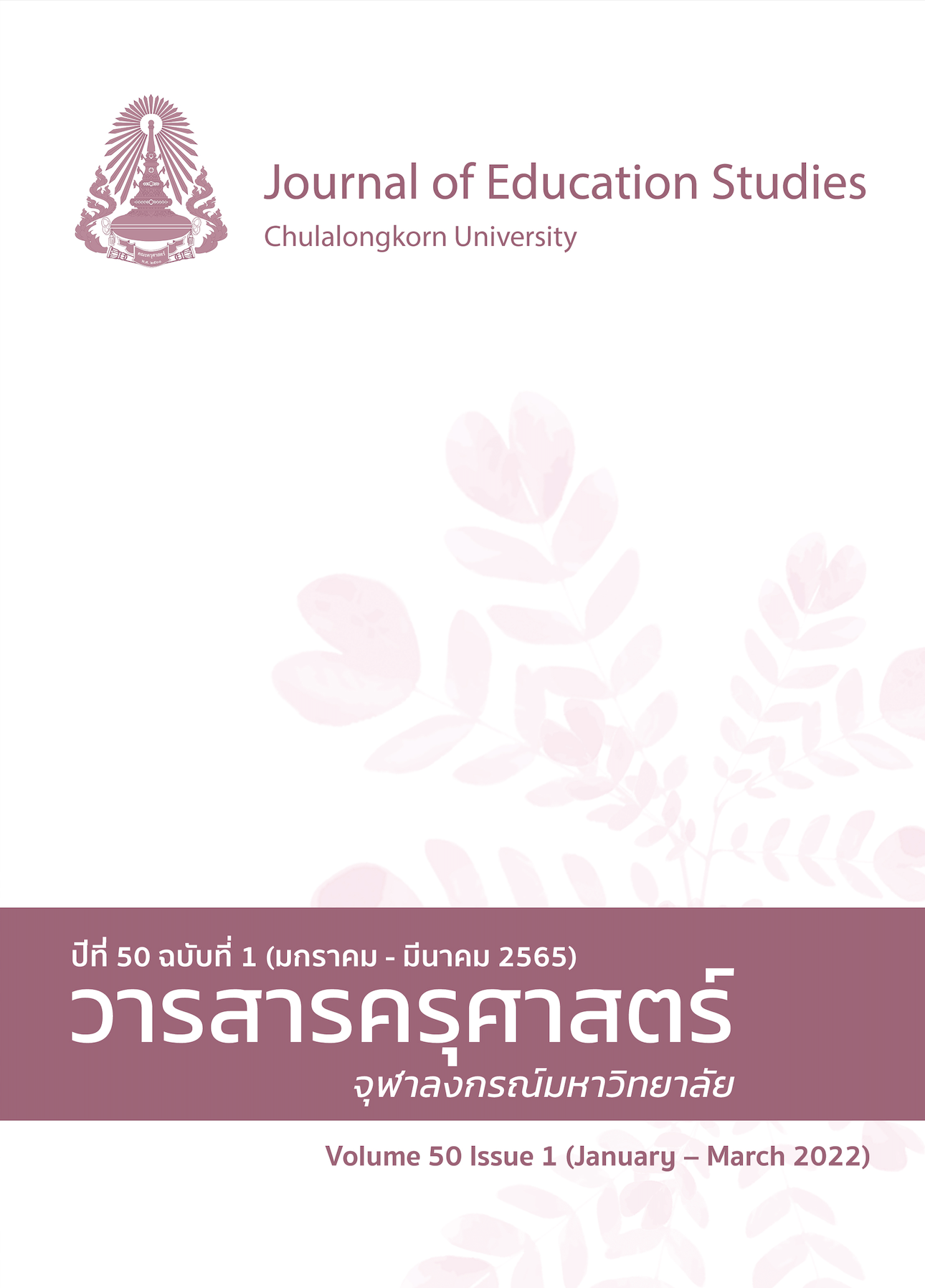Effects of The Feedback Applying Code Program on Problem Solving Skills Development of Elementary School Students
Keywords:
feedback, coding program, problem-solving skillAbstract
The study aims to 1) establish and verify the quality of feedback on a coding program to evaluate the development of problem-solving skills of primary school students, and 2) analyze the development of problem-solving skills of primary school students after the adaptation of the coding program was implemented and feedback given. The study applies primary research methods including the pretest posttest and time series design. The research tool is a problem-solving evaluation form. Data analysis tools are descriptive statistics including mean scores, standard deviation, the percentage of the development of problem-solving skills, and inferential statistics including repeated measures. The study divides the feedback and the evaluation of the adaptation of the coding program into four criteria: 1) students can write a program based on the exam instructions, 2) students can display the steps of writing the program,
3) students demonstrate the ability to complete the work, and 4) students propose solutions to the problems. The Item-Objective Congruence (IOC) is between .6 and 1.0. The study finds that the students showed the highest degree of development in problem solving skills in phase 4 of the study, which is statistically significant at the 0.05 level
References
ภาษาไทย
กระทรวงศึกษาธิการ. (2562). หลักสูตรแกนกลางการศึกษาขั้นพื้นฐาน พุทธศักราช 2551. กระทรวงศึกษาธิการ.
ประสาร มาลากุล ณ อยุธยา และ คณะ. (2532). การวิจัยและพัฒนารูปแบบการพัฒนาครูให้มีสมรรถภาพที่พึงประสงค์ตามหลักสูตรระดับประถมศึกษาระยะที่ 6 (คพศ. 6). กระทรวงศึกษาธิการ.
ศิริชัย กาญจนวาสี. (2552). ทฤษฎีการทดสอบแบบดั้งเดิม (Classical test theory) (พิมพ์ครั้งที่ 6). คณะครุศาสตร์ จุฬาลงกรณ์มหาวิทยาลัย.
สมพร ลีลาองอาจ. (2531). ปฏิสัมพันธ์ระหว่างระดับผลสัมฤทธิ์ทางการเรียนกับรูปแบบของผลย้อนกลับในบทเรียนคอมพิวเตอร์ช่วยสอนที่มีต่อผลสัมฤทธิ์ทางการเรียนของนักศึกษา [วิทยานิพนธ์ปริญญามหาบัณฑิต, จุฬาลงกรณ์มหาวิทยาลัย]. Chulalongkorn University Intellectual Repository (CUIR).
https://cuir.car.chula.ac.th/bitstream/123456789/47696/7/Somporn_le_front.pdf
อนงค์ เมธีพิทักษ์ธรรม และ กมลวรรณ ดังธนกานนท์. (2555). ผลของรูปแบบการให้ข้อมูลย้อนกลับที่แตกต่างกันที่มีต่อความสามารถในการแก้ปัญหาทางคณิตศาสตร์ของผู้เรียนระดับชั้นมัธยมศึกษาปีที่ 1 [วิทยานิพนธ์ปริญญามหาบัณฑิต, จุฬาลงกรณ์มหาวิทยาลัย]. Chulalongkorn University Intellectual Repository (CUIR).
https://cuir.car.chula.ac.th/bitstream/123456789/45304/1/Anong_ma.pdf
ภาษาอังกฤษ
Duncan, N. (2007). Feed-forward: Improving students use of tutors comments. Assessment & Evaluation in
Higher Education, 32(3), 271-283.
Feletti, G. I. (1980). Relibility and validity studies on modified essay questions. Academic Medicine.
Goldsmith, M. (2002). Leadership Development: Try feedforward instead of feedback. Journal of
Excellence, 25(8), 15-19.
Downloads
Published
How to Cite
Issue
Section
License

This work is licensed under a Creative Commons Attribution-NonCommercial-NoDerivatives 4.0 International License.



